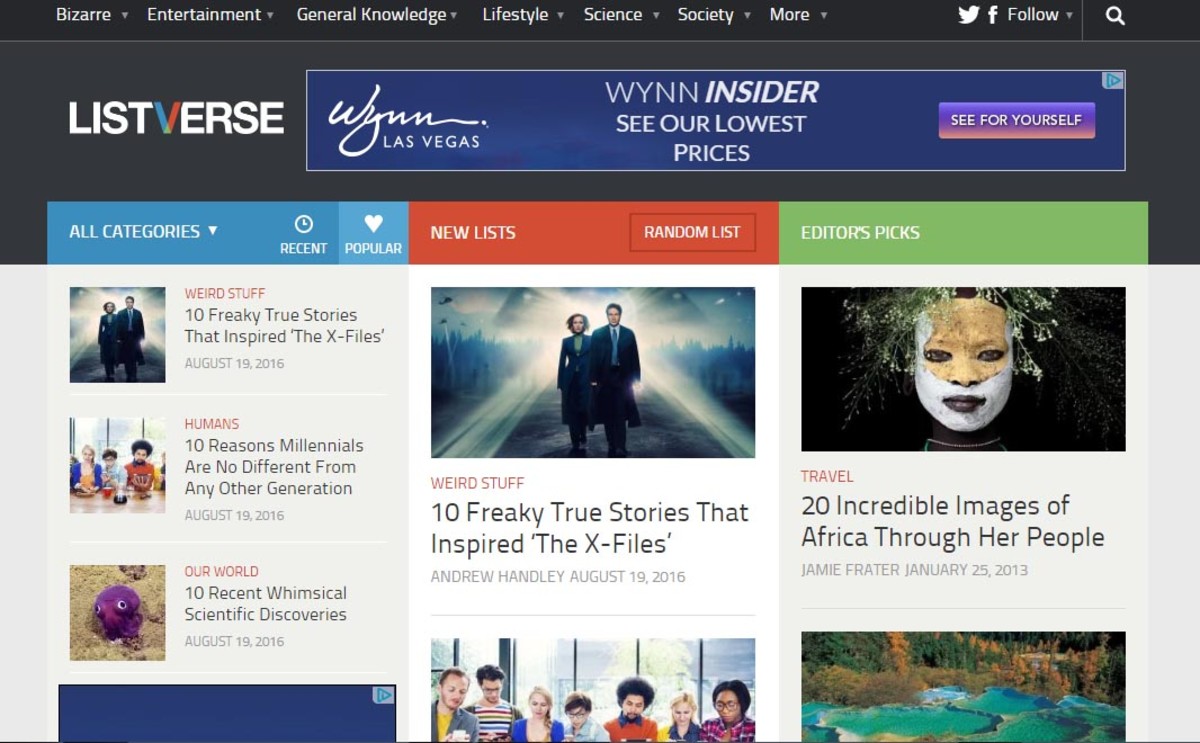Key Elements to Good Blog Content

Write a Great Hub
What does it take to write a good blog (or hub)? Writing is as much a creative endeavor as any other form of expression. Having some talent helps, but you can also learn and grow in your writing. Seeking out the help of others can be one way to improve.
A while back I published a post on another blog about key elements to good blog content. I started out by reading the advice of others who were successful bloggers and then I compiled the information into a short article as a way of reviewing, learning and passing on the experience. This is also good advice for Hubbers.
This is the second part of a two-part article on writing good content, for Part One go here . . .
1 - Topics and Subject Matter
If you specialize in a particular topic, then you may find it easier to come up with ideas to write about. If you're having trouble generating ideas, try some brainstorming activities. These can be an effective tool to help. I am not going to get into this area in any detail but I have found there are many good posts that you can refer to for this subject. Do ideas come to you at strange times or when you are far removed from writing (maybe at dinner at a restaurant, for example)? I think we have all experienced that phenomenon. Keep something handy to write on (could also be electronic, such as a sticky-note on your phone), or use anything that is available and write down ideas as they come to you. Soon you will generate a list of subject matter. Topics, of course, should be of relevance to your blog (if you have a focused blog).
- Remember the saying KISS . . . "keep it simple stupid". Concentrate on one topic and stick to that subject. I'm talking about your individual post's content. A website may have a focus or be all over the place, that is entirely up to you but each post within that site should have a clear and stated purpose.
- Know your audience. This is not always that easy but try and identify and speak directly to them. Once again, if you have a specific niche that you write about, then identifying the audience may be easier.
- Make it something you care about (something you find useful and important). It is easier to write about topics that you are interested in. Inspiration, motivation, and ideas will be more forthcoming if the subject matter is important to you.
- Write about something topical or fulfill a need. Readers will be interested and appreciative if your post shows them how to do something.
- Unless you are already an expert, be sure to do any required research. You want to sound credible and convincing. Over time, you might be surprised to find out that you have become somewhat of an expert in the area you write about.
2 - What to Name it?
How you name a post is important. It will make a first impression with a reader and may be the reason someone decides to continue and read-on. The title will set the tone and should give some clue to what is coming. If it is controversial, that might grab a reader's attention. If you ask a question, that may attract others who have asked themselves the same thing. The content of the post may help determine the type of strategy you want to use.
- It could be funny but make sure you are not offending readers (unless that is your goal).
- It is ok to make claims and promises, but you must be able to deliver on those.
- How about sending out a challenge? Curious readers will want to answer that call.
- Can it be personalized? Yes, you will be successful if you can make readers feel the article was written just for them.
3 - Content
How to structure your article is a subject that is discussed in length from any number of sources. You may have learned good writing techniques in high school or college but also may need some brushing up. I have listed a few points worth mentioning and there is also suggested reading at the end of this hub. To start, follow the age-old writing formula: “tell the reader what you are going to write about, then write about it, and then tell the reader what you just wrote about.” In other words, bookend the body of your work with an introduction and a conclusion. Some other points:
- I have read, in a number of articles, that the first sentence is very important. This is where first impressions are made and may entice your audience to read on. The first sentence should be a compliment to the title. It could be a one-sentence synopsis of the article that is to follow.
- Keep everything very clear and concise. You should have a clear goal and don't stray from the topic (or at least not too far from the topic).
- To give the article more substance, consider: telling a story, using examples, expressing your opinion, linking to other sources, quoting someone and suggesting further reading.
- Use formatting to make your post functional and logical: make reasonable sized paragraphs that are grouped by subject; use headers and sub-titles to break-up your article; indent or block-out when appropriate.
- Make your post more professional looking by add images, diagrams, and charts. Use formatting techniques to enhance the look and make reading easier (such as bullet points or numbering). Writing tools like lists are a great way to get the point across.
4 - Checking Your Work
You must be diligent when proof-reading and checking your work. Do it once, twice, three times or more. Then, after a break, come back and do it all over again! Many of us will struggle with things like grammar and punctuation . . . and don't get me started on spelling!
- Use spell check but also make sure you are using the right form a word (there vs their, for example).
- Read over your post a number of times before publishing. This will help you avoid having to make corrections after the fact.
- If you can, have someone else edit your work.
- Check your links to be sure they are working.
- Be sure to do all of the other little tasks that put the finishing touches on your work. This includes: using tags, assigning categories, employing SEO strategies, using widgets or other devices (depending on what is available with your blog platform).
Find More Help
For most of us, writing will take both time and effort. Don't rush it, take your time and be patient. If you are looking for more help, I would urge you to read the two articles listed below. These were written by two very successful bloggers and I have used their tips to help me. I think you will find that they have some good ideas and their articles contain many links to even more information.
My Blog Sites
- My Other Blog
A Genealogy and Family History Site








